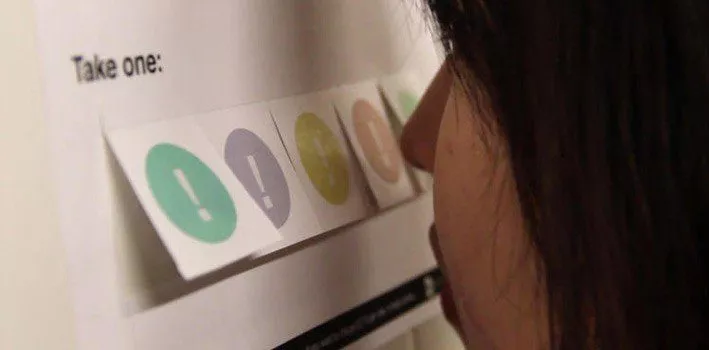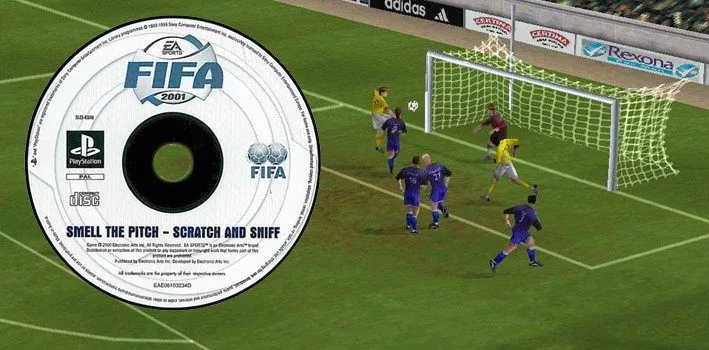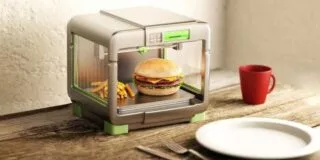Scratch and sniff technology, a weird concept that I personally felt never really took off and was bound to the realms of gimmicks and fads that inevitably fizzled out.
However apparently it has triumphed in certain areas.
Of course it isn’t in the same league in terms of success when compared to other apparent gimmicks of the time such as touch screen and the CD, but in its own special way it has come out on top!
Before I delve into the list, let’s go through the process of creating scratch and sniff.
The process of creating the scent is always the same regardless of its future application but the difference lies in the way it’s actually applied to a surface.
First, Scented oil is mixed with a water and water-soluble polymer solution in a large vat, or reactor, and blended at a high speed.
As this blends, the oil forms tiny droplets each reaching 20 to 30 microns in size after about 12 hours, this makes them invisible to the naked eye.
Then, the blending stops and a chemical catalyst is added which causes the polymer’s to become water insoluble.
This encapsulates each oil droplet which are then gathered and washed to remove any that didn’t bond or react correctly.
Next, the capsules are placed in a tank before mixing with a water base and an adhesive, forming a thick gloop and applied to the surface.
This can be done by silk-screening, web offset printing, flexo-graphic printing, i.e. scratch and sniff stickers, and extrusion, i.e. making perfume sample strips.
How they work – you scratch, the microcapsules break and the oil travels up your nose and voila; sandalwood, smelly socks or fruit the possibilities are endless!
Here we’re going to look at 10 of the most surprising and unknown places we’ve seen Scratch & Sniff technology.
Stickers, cards and collectors
So with the process explained let’s begin! The most common place we know scratch and sniff would be stickers.
Smells are a great way of enticing kids and in 1977, Creative Teaching Press combined the two, creating the first mass produced scratch and sniff stickers.
They came in 24 styles and are referred to as CTP77’s by collectors (yes collectors!).
These stickers were mainly used as rewards for a teacher’s students.
The era of scratch and sniff seemed to be the 70’s & 80s but as the years went on, scratch and sniff stickers became more and more common place.
In 2000 for example, Panini, the world renowned sticker producer, produced The Simpsons sticker album which included amongst other options, a scratch and sniff range.
Drug prevention and official documentation
A much weirder, or at the very least, random place to find this technology would be in official documentation.
In 2013, the UK charity Crimestoppers released 210,000 leaflets aimed at tackling the rise of drug dealers in the area.
It was a card with a scratch and sniff section to make people aware of the smell of cannabis and the ways to identify possible cultivations in their area.
In 2016, the same idea was utilized by UK police charities again, releasing a card which this time included the smells of various drugs.
The “No Excuses” campaign used the wider variety on these cards to help young people identify and stay away from potential drug use.
Album covers and artwork
The music world isn’t even immune to the attraction of scratch and sniff technology with many CD’s and LP’s released featuring it, mainly on covers but also on the product itself.
Katy Perry’s album Teenage Dream smelt of cotton candy when scratched.
The technology in music is often more of a gimmick as we said earlier, but also a way of appealing to audiences on another sensory level.
Mae released a limited edition CD that smelt like the ocean and the audience were encouraged to scratch and sniff the album during the song, “The Ocean“.
Fighting the power

Campaigning, like marketing, is all about attracting people and getting a message across, albeit for a different reason.
In 2016, the New York subway was actually the next innovation in campaigning through the use of scratch and sniff.
Angela H. Kim placed posters around Canal Street, Union Square, and Herald Square stations to tackle the stench of the underground.
The poster’s feature a strong message mimicking that of normal MTA announcements but actually say about their ineffectiveness and comes with different scented tabs to “make your ride more pleasant”.
Clothing
One of the weirdest places we’ve seen scratch and sniff has to be on clothing, but hey it’s the modern world, why not!
Naked & famous sell a pair of jeans that are scratch and sniff with the scent of mint which apparently lasts up to 5 washes and has been a very popular seller.
Smellies, a clothing company, sell a huge range of scratch and sniff clothing aimed at children including apples, pears, and strawberries.
Home decor
By now, we all realize this concept is a very popular idea and spans many more areas that at least I knew of but this next concept is very Wonka-esque.
Scratch and sniff wallpaper, produced by flavorpaper, allow you to cover your walls with your favorite scent such as their “Cherry Forever” option which obviously smells of, you guessed it, cherries.
Now this seems a step too far for my liking but as a novelty, for a club or bit of fun, it’s a great idea.
Marketing and advertisements
Marketing always loves the new and the edgy and this is no exception.
We’ve all received a perfume or cologne sample in a magazine that was a scratch or rub to smell.
In 2013, Old Spice took this one stage further and combined it with the internet through its ad in which a person “clicked to smell”.
A scratch and sniff card was then sent in the post, this obviously limited the ads effectiveness and the joy of scratch and sniff but the idea was there.
We think it’s only a matter of time until scratch and sniff is utilized in bus stations, subways or other public area, to sell products through an extra dimension.
The gaming world

Similar to the music world, gaming has also utilized scratch and sniff to appeal to other senses.
In 1999, Gran Turismo 2 used the technology in a strange marketing ploy, a 2-disc edition of the game, the one disc being blue and featuring the smell of fuel and burning rubber.
This wasn’t even the first time the gaming world used this, in 1995 Super Nintendo’s Earthbound game came with a set of cards, with some awful smells, designed to be smelt during game play at certain times.
The technology isn’t just tied to the smaller or the racing genres, in 2000, Fifa 2001 had the scent of a football stadium turf on the disc.
Literature
Books, magazines and comics aren’t usually the places that spring to mind but a scratch and sniff recipe book is a very good idea and the concept has spread across the literary world.
In 2014, DC Comics released a scratch and sniff edition of Harley Quinn, the suicide squad member and all round bad-girl, the edition took you on a tour of her Coney Island home.
Now we all like a glass of wine but the language and snobbery of tastings often turn many away, Richard Bett has sorted this problem by producing “the essential scratch and sniff guide to becoming a wine expert”.
This book helps the reader identify the different scents and aspects of wines with 16 scents and does it through a fun and illustrated way.
A great option to utilize this technology I’m sure you’d agree!
The next generation
Although, technically not scratch and sniff, the next step in this concept came in 2001 when DigiScents Inc. started selling the iSmell, a personal scent synthesizer connecting to a PC via the USB port.
The device held 128 primary smells that could be mixed and matched as required to produce thousands of smells.
The smells could be embed into websites or other platforms, and could release small bursts of scent at appropriate times, such as if you’re playing a first person shooter and get into a gun battle, whiffs of gunpowder will appear as you fire.
So there we have it, some wonderfully weird ways of using scratch and sniff technology that we never really knew existed.
From the slightly more eccentric wallpapers to the futuristic iSmell, there’s definitely more to this concept than the basic stickers and cards of the past.
I think scratch and sniff appeals to many merely for the gimmicky aspect and for the same reason we all must touch anything that says “wet paint” just to check.
It’s human nature, anything that satisfies a sense or two is always a winner and it’s a great way for remembering a product or service, because let’s face it, you’re going to look for a pair of mint scented jeans or try and remember whether your copy of Fifa 2001 had the scented disc, we all will don’t worry.
With the world of online shopping and simplistic same day delivery becoming a realistic possibility, a scratch and sniff card or advert for a product with an attached QR code or payment link may be the future, especially in the fragrance world.
Whatever the situation, with the birth of new technology comes new opportunity, watch this space.











